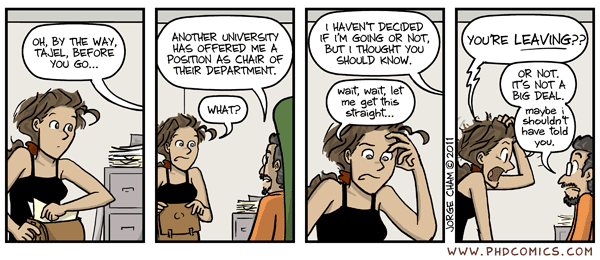First announcement and call for papers (with apologies if you receive this
more than once):
MATCH-UP 2012:
the Second International Workshop on Matching Under Preferences
19-20 July 2012
Budapest, Hungary
co-located with SING8: The 8th Spain-Italy-Netherlands Meeting
Celebrating the 50th anniversary of the seminal paper by Gale and Shapley,
and following the success of the first MATCH-UP workshop in Reykjavík in
interdisciplinary workshop on stable matchings and related topics.
Background
----------
Matching problems with preferences occur in widespread applications such
as the assignment of school-leavers to universities, junior doctors to
hospitals, students to campus housing, children to schools, kidney
transplant patients to donors and so on. The common thread is that
individuals have preference lists over the possible outcomes and the task
is to find a matching of the participants that is in some sense optimal
with respect to these preferences.
The remit of this workshop is to explore matching problems with
preferences from the perspective of algorithms and complexity, discrete
mathematics, combinatorial optimization, game theory, mechanism design
and economics, and thus a key objective is to bring together the research
communities of the related areas.
Invited speakers
----------------
* Nicole Immorlica, Northwestern University
* Rob Irving, University of Glasgow
* Fuhito Kojima, Stanford University (on leave at Columbia University)
* Tayfun Sönmez, Boston College
List of topics
--------------
The matching problems under consideration include, but are not limited to:
* two-sided matchings involving agents on both sides (e.g. college
admissions, resident allocation, job markets, school choice, etc.)
* two-sided matchings involving agents and items (e.g. house allocation,
course allocation, project allocation, assigning papers to reviewers,
school choice, etc.)
* one-sided matchings (roommates problem, kidney exchanges, etc.)
* matching with payments (assignment game, auctions, etc.)
Submissions
-----------
We call for two types of contributed papers.
Format A: original contribution
* at most 12 pages
* accepted papers will be published in proceedings (however, this should
not prevent the simultaneous or subsequent submission of contributed
papers to other workshops, conferences or journals)
Format B: not necessarily original work
* no page limit
* only the abstract will be published in proceedings
Authors should indicate which format type their paper should be considered
under.
Important dates
---------------
* Deadline for submission of contributed papers: 19 March 2012
* Notification of acceptance: 20 April 2012
* Early registration deadline: 18 May 2012
* Workshop: 19-20 July 2012
Organising committee
--------------------
* Péter Biró (Institute of Economics, Hungarian Academy of Sciences)
* Tamás Fleiner (Budapest University of Technology and Economics)
* David Manlove (University of Glasgow)
* Tamás Solymosi (Corvinus University, Budapest)
Programme committee
-------------------
* Péter Biró (Chair, Institute of Economics, Hungarian Academy of Sciences)
* Estelle Cantillon (Université Libre de Bruxelles)
* Katarína Cechlárová (Univerzita Pavla Jozefa Safárika)
* Paul Dütting (EPFL, Lausanne)
* Aytek Erdil (University of Cambridge)
* Tamás Fleiner (Budapest University of Technology and Economics)
* Guillaume Haeringer (Universitat Autonoma de Barcelona)
* Elena Inarra (University of the Basque Country)
* Zoltán Király (Eötvös Loránd University, Budapest)
* Flip Klijn (Universitat Autonoma de Barcelona)
* David Manlove (University of Glasgow)
* Eric McDermid (21st Century Technologies)
* Shuichi Miyazaki(Kyoto University)
* Marina Nunez (Universitat de Barcelona)
* Ildikó Schlotter (Budapest University of Technology and Economics)
* Tamás Solymosi (Corvinus University, Budapest)
Further information
-------------------



